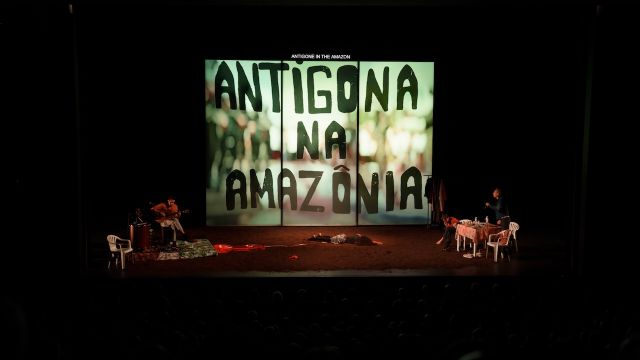Antigone In The Amazon
Brazil has a strong tradition of political theatre – hardly surprising given its long and bloody history of violence, land-grabbing and dictatorship. After Augusta Boal’s theatre of the oppressed late last century, Swiss theatre maker Milo Rau has collaborated with an Indigenous community of landless workers and Brazilian activists to create Antigone in the Amazon.
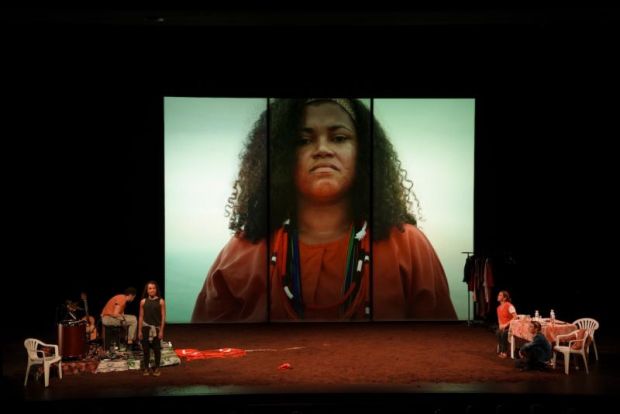
With actors from Belgium’s NTGent, Rau’s adaptation and much abbreviated version of Sophocles’ classic was first performed two years ago in the northern Brazilian state of Para, as part of a chilling re-enactment of a worker’s protest there in 1996. That ended in an unforgettable highway massacre.
Amazonians are standing against environmental devastation as their jungle home burns, just as Antigone stands unbeaten against an ancient tyranny decreeing that she must not bury her brother killed in war.
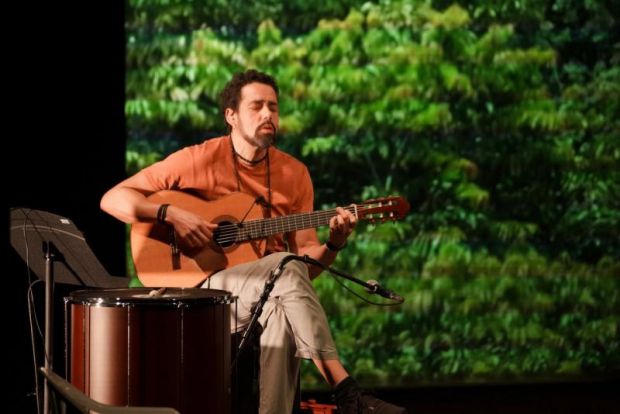
This compelling production now opens the Sydney Festival (via Adelaide’s last year). The four performers walk an open stage of red soil, with just a costume rack, plastic chairs and a guitar and a few drums for musician Pablo Castello, as they swap roles and enact snippets from Antigone. Behind them on three adjacent screens we see the Para (unnamed) community ritualistically moving through other key scenes, as a local choir sings of aspiration.
The intercutting of video action (Moritz von Dungern) to the action of actors onstage, and the well-timed interplay between actors “speaking” to the screen’s action, make exquisite theatrics. Striking Indigenous activist Kay Sara is Antigone onscreen, while Teiresis, the blind seer, is played by Indigenous philosopher Ailton Krenak; haunting in close up he warns us that the Earth is now in fever and we should just take what we love.
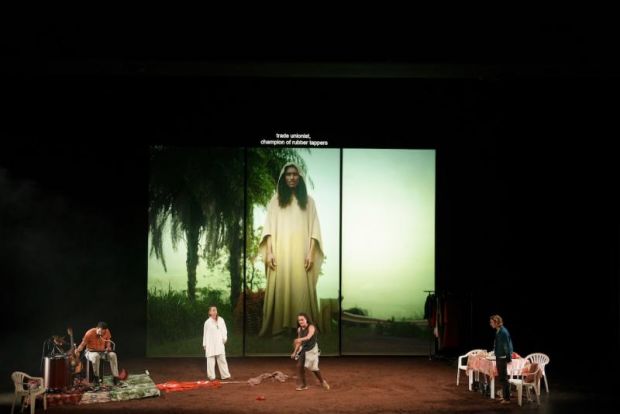
Besides the metaphor of tyranny, and Sophocles’ words that there is nothing more monstrous than Man, Antigone’s story does at times move well beyond that of the Amazon, flattened by expanding (soy) monocultures and Indigenous disempowerment.
Amongst other roles, Sara De Bosschere is outstanding, and subtle, as the tyrant Creon, as is Arne De Tremerie playing his son, Haemon, betrothed to cousin Antigone. The classic ends littered with suicides; a relevance which bites hard when the actors, who also narrate, tell us that so many Amazonian people, and now even the young, see no future and suicide as well.
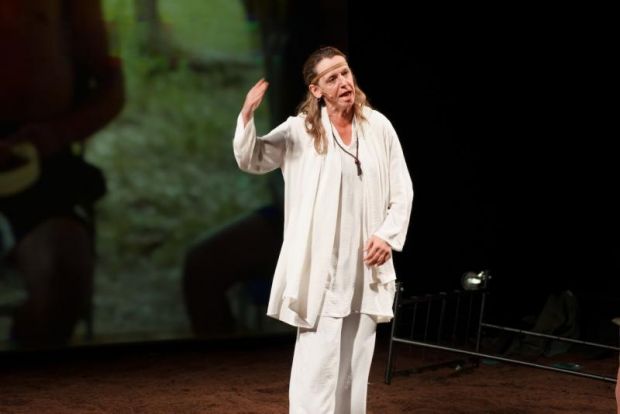
The production is in Dutch, Portuguese, Tucano and English, and all with English surtitles. The only Brazilian performer onstage is the mercurial Frederica Araujo, impassioned in his Antigone roles and also as a narrator about his fellow Brazilians.
So many obviously burn with the memory of that massacre but I wonder what they make of that story overlayered with an ancient Western classic? Whatever, for us it’s well worth seeing, and being reminded of the agony of the Amazon.
Martin Portus
Photographer: Stephen Wilson Barker
Subscribe to our E-Newsletter, buy our latest print edition or find a Performing Arts book at Book Nook.

